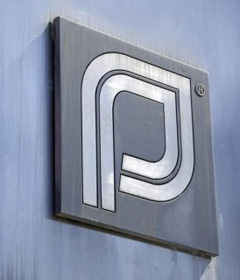Dahlia Lithwick thinks that pro-life politicians are lying when they say that Planned Parenthood sold baby parts. So far, she says, every state investigation has found no violation of the law by Planned Parenthood, despite the  fact that it is, indeed, illegal to sell baby parts. Ramesh Ponnuru disagrees:
fact that it is, indeed, illegal to sell baby parts. Ramesh Ponnuru disagrees:
Assume that all of these states went through an active and thorough inquiry, though, and Lithwick’s conclusion still isn’t correct. That we do not have proof of lawbreaking by Planned Parenthood does not mean we do not have evidence that it participates in the exchange of fetal tissue for money. Planned Parenthood, after the videos came out, announced that it would stop taking money for fetal tissue, which would seem to be conclusive evidence that it previously did so. As for whether this was merely “reimbursement,” we have the videos themselves, in which a Planned Parenthood official says that abortion clinics “can do a little better than break even” from this market, and another one says they can make “a fair amount of income.”
There is, of course, no question that Planned Parenthood (a) received money and (b) provided fetal tissue for research purposes. Nobody has ever denied it. The question is whether they broke the law, which forbids “any person to knowingly acquire, receive, or otherwise transfer any human fetal tissue for valuable consideration.” But what, exactly, is valuable consideration? Well, here’s the law:
The term “valuable consideration” does not include reasonable payments associated with the transportation, implantation, processing, preservation, quality control, or storage of human fetal tissue.
Regardless of what’s on the videos, every investigation of Planned Parenthood has concluded that this is all they did: they accepted reasonable payments to reimburse them for their actual costs of extracting and preserving the tissue. So does that constitute “exchange of fetal tissue for money”?
This starts to get abstract pretty quickly, but as always, I’m eager to help. Here’s an analogy. Suppose you want a can of soup. I’m going shopping today, so I volunteer to pick up a can of soup for you. It costs a dollar. When I get home, I give you the soup and you give me a dollar. Did I exchange soup for money?
I don’t think so. Now try another one. Instead of going to the store, I call an Uber driver, who goes to the store for me. I give him a dollar for the soup and he charges me a dollar for the trip. I’m out two dollars, so this time you give me two dollars for the soup. Did I exchange soup for money?
Nope. Now let’s try a final example. A surgeon performs an abortion at my clinic. I ask him to take some extra time to extract specific pieces of fetal tissue. His fee for this is $50. Then I have to package it, label it, fill out some federal forms, and store it in a purpose-built freezer. That costs me $20. Then I have to ship it. The medical transport company charges me $40 for this service. In return, you give me $110 for the tissue. Did I exchange fetal tissue for money?
Common sense says I didn’t. Ramesh Ponnuru thinks I did. I’ll let you decide who’s right.

















